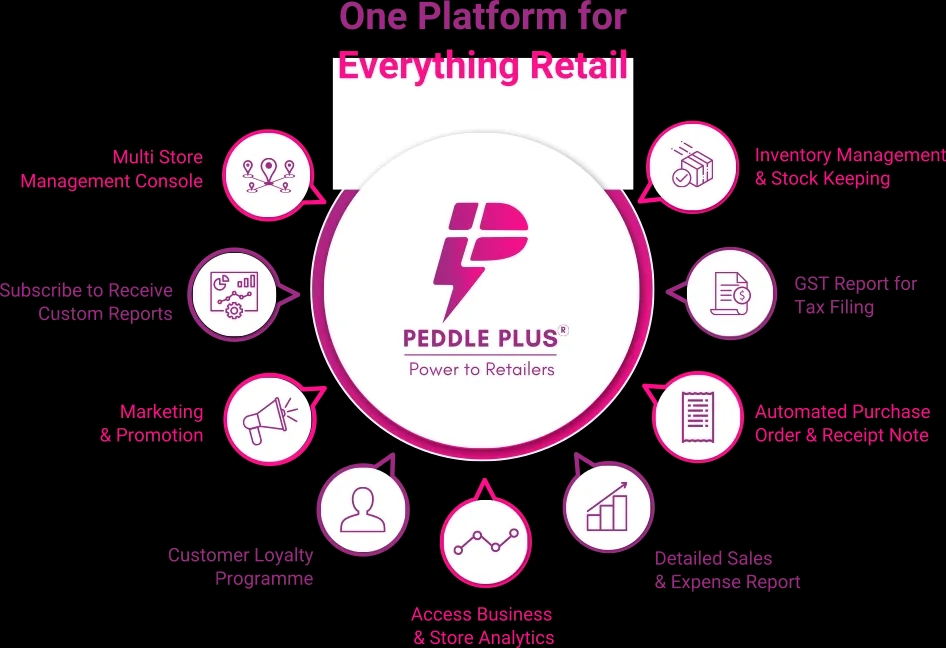Difference between lead management and CRM software
Not sure whether you need lead management or CRM software? Discover the core differences, benefits, and use-cases of both to choose the right tool for your business success.


Retail ERP Software with Maximum Features
Inventory management
Classify and group the complete stock correctly for any number of Products & SKUs. Automatically manage stocks and place supplier orders.
Billing & Invoicing
Get GST-ready with our easy-to-use billing software which creates GSTR-I, GSTR-II & GSTR-III automatically from the system without any double entry.
Point of sale
Increase productivity with the easiest POS billing module for small & medium retailers. It covers all types of POS like normal sale, exchange and complimentary.
GST Accounting
Instantly obtain your primary books of account with analysis tools like daily transaction sheet, cost center reporting and more.
Frequently Asked Questions
Find answers to common questions about our Peddle Plus ERP system, including features, setup, and best practices.